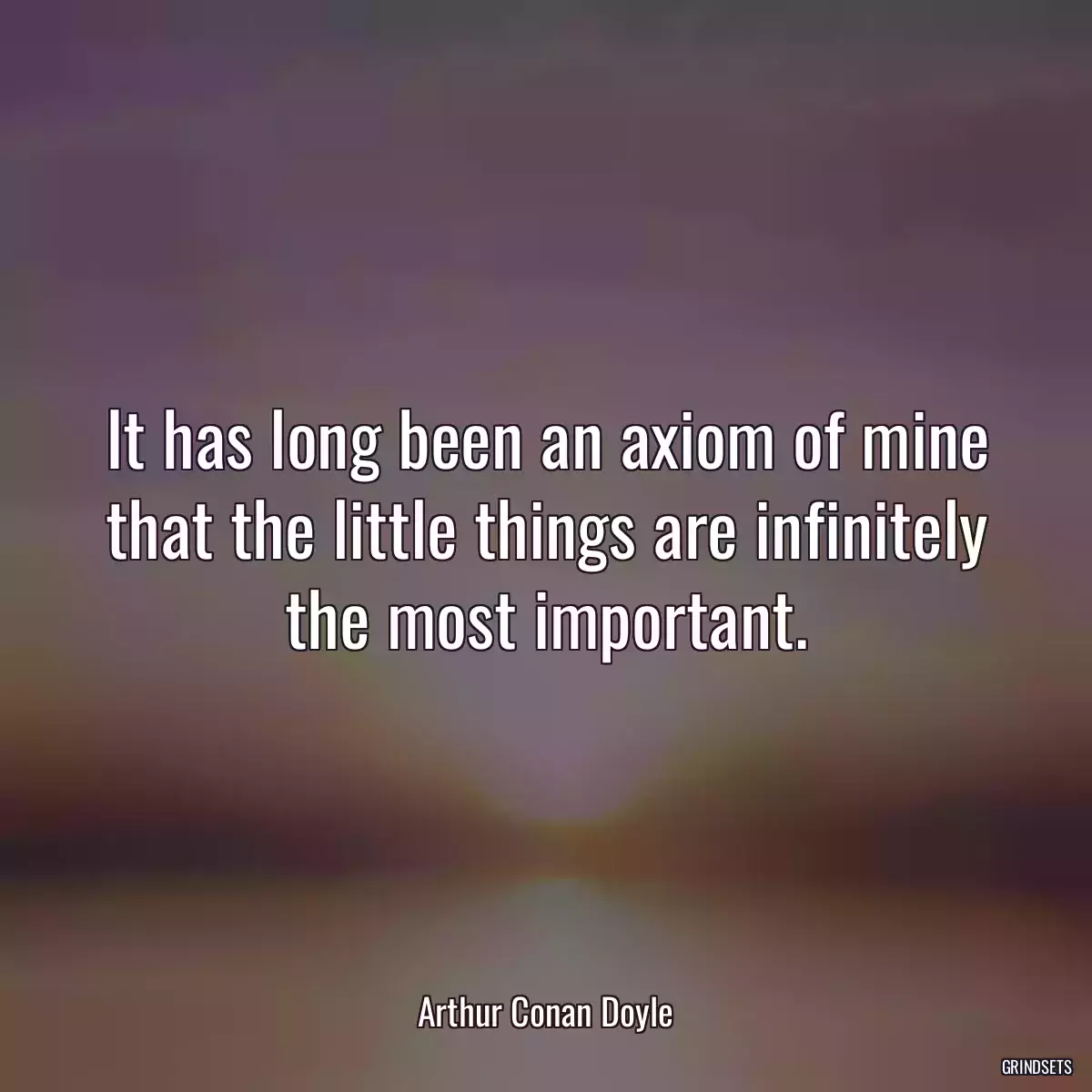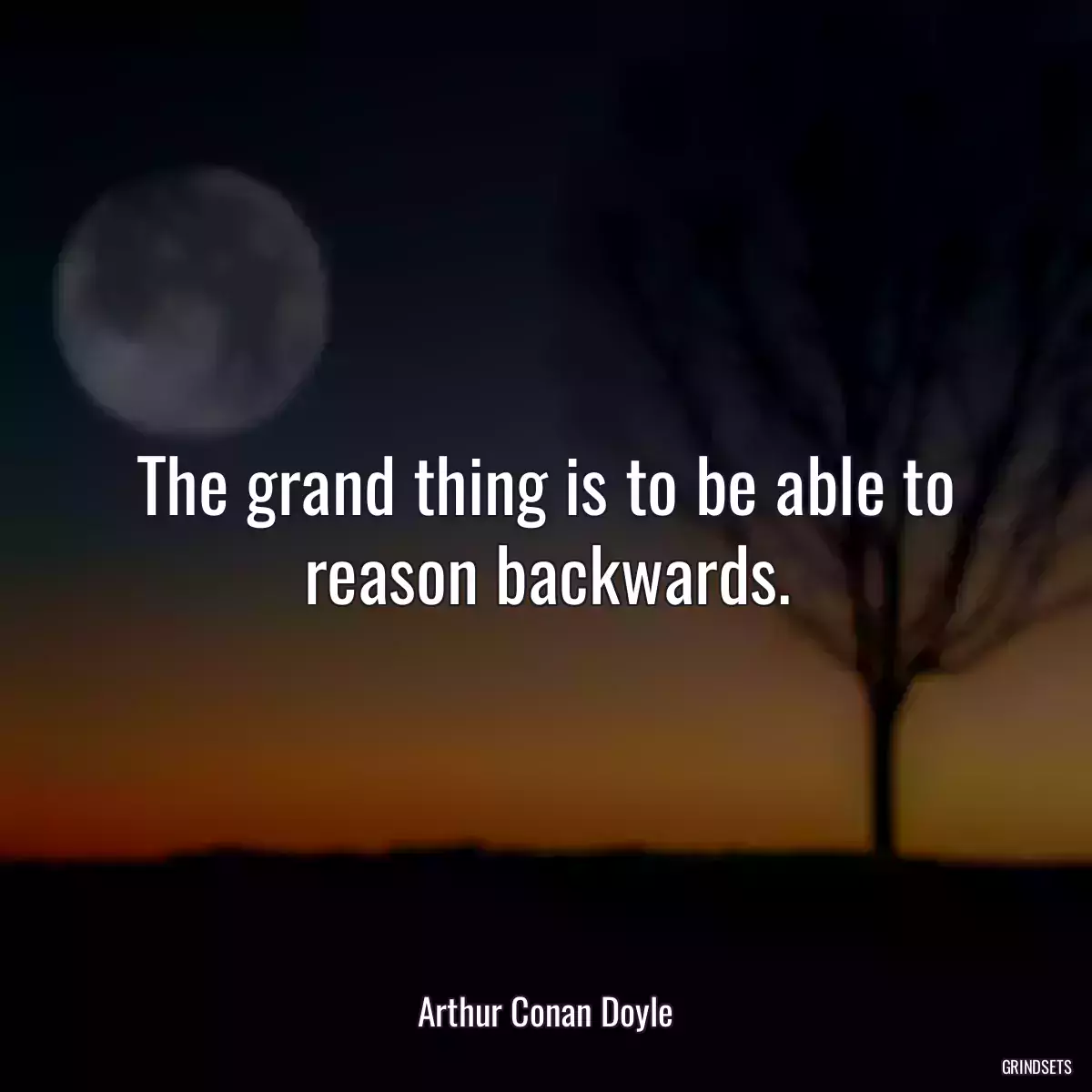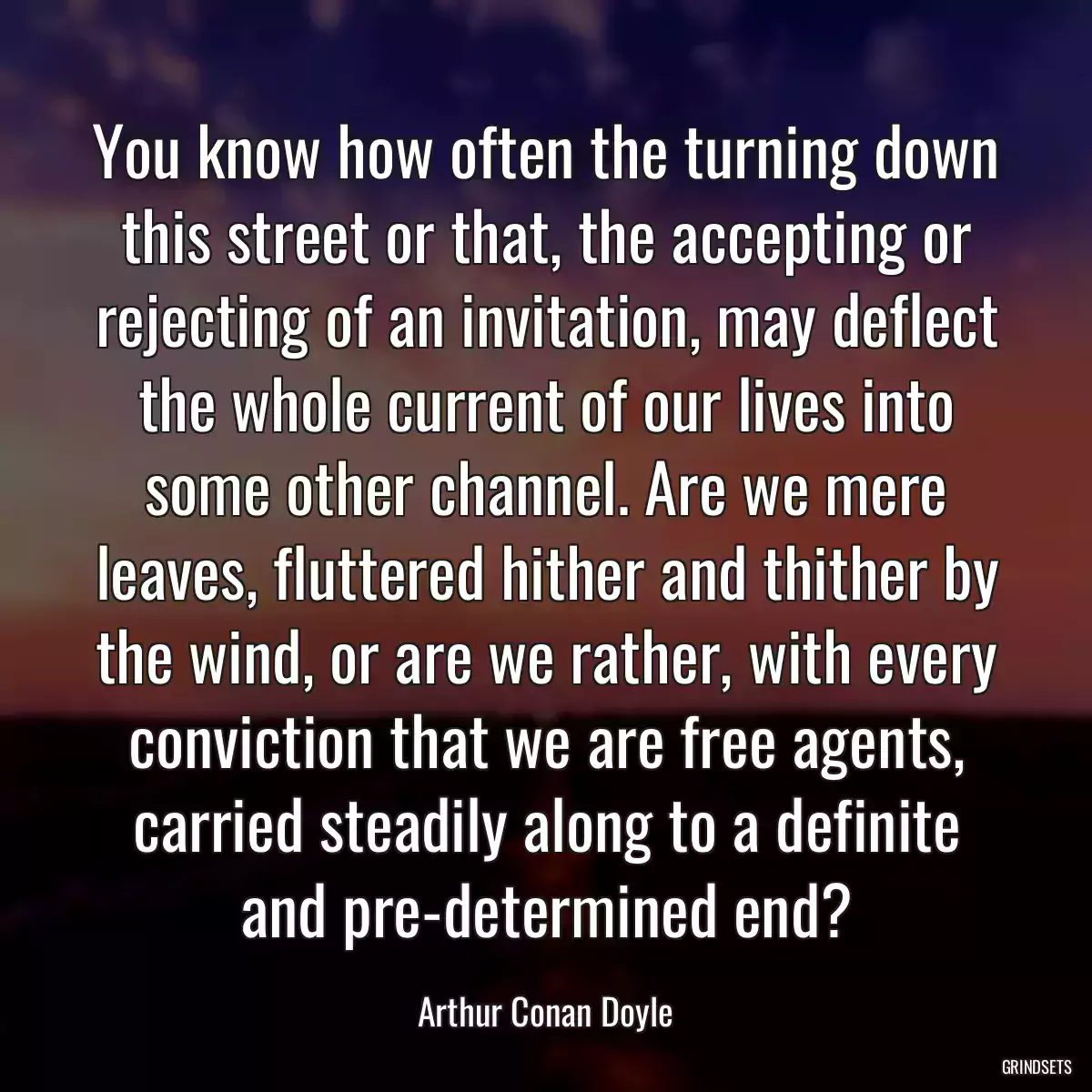
Quotes Arthur Conan Doyle
Find dozens of Arthur Conan Doyle with images to copy and share.

Mediocrity knows nothing higher than itself, but talent instantly recognizes genius.
Whenever you have eliminated the impossible, whatever remains, however improbable, must be the truth.
It is, I admit, mere imagination; but how often is imagination the mother of truth?
You may also like
Skill is fine, and genius is splendid, but the right contacts are more valuable than either.
Really, Watson, you excel yourself," said Holmes, pushing back his chair and lighting a cigarette. "I am bound to say that in all the accounts which you have been so good as to give of my own small achievements you have habitually underrated your own abilities. It may be that you are not yourself luminous, but you are a conductor of light. Some people without possessing genius have a remarkable power of stimulating it. I confess, my dear fellow, that I am very much in your debt.
My mind rebels at stagnation. Give me problems, give me work, give me the most abstruse cryptogram, or the most intricate analysis, and I am in my own proper atmosphere. But I abhor the dull routine of existence. I crave for mental exaltation.
When the impossible has been eliminated, all that remains no matter how improbable is possible.
As Cuvier could correctly describe a whole animal by the contemplation of a single bone, so the observer who has thoroughly understood one link in a series of incidents should be able to accurately state all the other ones, both before and after.

It is of the highest importance in the art of detection to be able to recognise out of a number of facts which are incidental and which are vital.
Problems may be solved in the study which have baffled all those who have sought a solution by the aid of their senses. To carry the art, however, to its highest pitch, it is necessary that the reasoner should be able to use all the facts which have come to his knowledge; and this in itself implies, as you will readily see, a possession of all knowledge, which, even in these days of free education and encyclopaedias, is a somewhat rare accomplishment.
An absence of antecedents and of relatives is sometimes an aid rather than an impediment to social advancement . . .
He is not a bad fellow, though an absolute imbecile in his profession. He has one positive virtue. He is as brave as a bulldog and as tenacious as a lobster if he gets his claws upon anyone.
Great sorrow or great joy should bring intense hunger--not abstinence from food, as our novelists will have it.
He [Professor Moriarty] is the Napoleon of crime, Watson. He is the organizer of half that is evil and of nearly all that is undetected in this great city. He is a genius, a philosopher, an abstract thinker. He has a brain of the first order.
You know how easily and suddenly these things happen, beginning in playful teasing and ending in something a little warmer than friendship. You squeeze the slender arm which is passed through yours, you venture to take the little gloved hand, you say good night at absurd length in the shadow of the door. It is innocent and very interesting, love trying his wings in a first little flutter.
Philosophy, astronomy, and politics were marked at zero, I remember. Botany variable, geology profound as regards the mud stains from any region within fifty miles of town, chemistry eccentric, anatomy unsystematic, sensational literature and crime records unique, violin player, boxer, swordsman, lawyer, and self-poisoner by cocaine and tobacco.
You may also like

You know how often the turning down this street or that, the accepting or rejecting of an invitation, may deflect the whole current of our lives into some other channel. Are we mere leaves, fluttered hither and thither by the wind, or are we rather, with every conviction that we are free agents, carried steadily along to a definite and pre-determined end?
I have mastered the principles of several religions. They have all shocked me by the violence which I should have to do to my reason to accept the dogmas of any one of them.